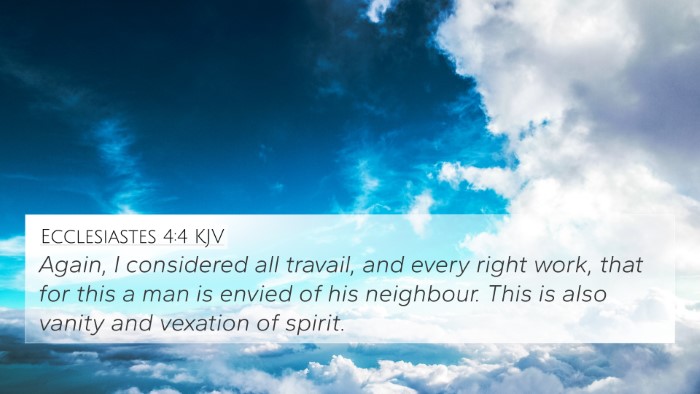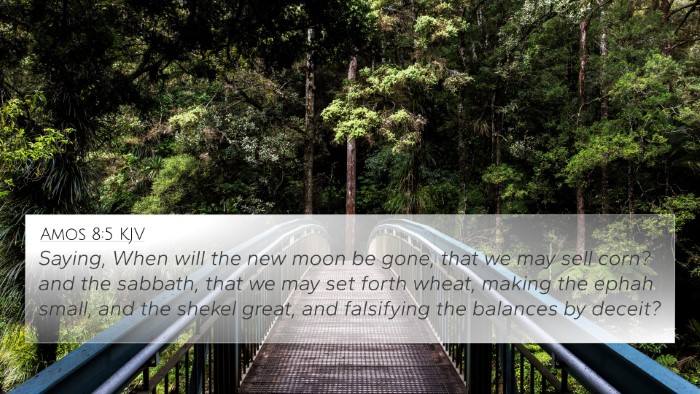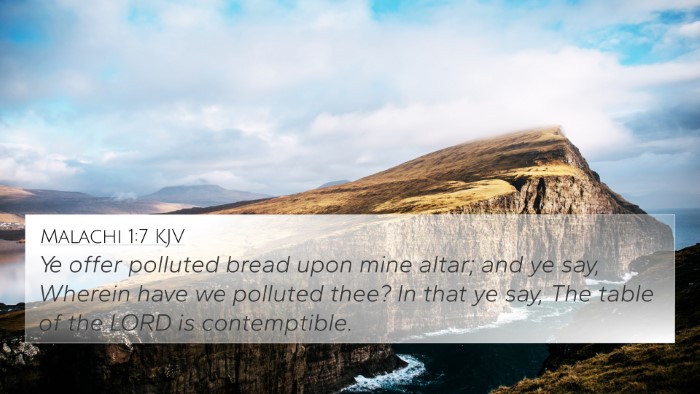Understanding Matthew 26:8
Matthew 26:8 provides a profound insight into the reactions of the disciples of Jesus during a solemn moment, highlighting themes of misunderstanding and the nature of true worship. In this commentary, we gather insights from notable public domain sources like Matthew Henry, Albert Barnes, and Adam Clarke to reveal the deeper meanings and contexts surrounding this verse.
Verse Text
Matthew 26:8 (KJV): "But when his disciples saw it, they had indignation, saying, To what purpose is this waste?"
Contextual Analysis
This verse occurs during a critical event in the final days of Jesus’ ministry, where a woman anoints Jesus with precious ointment. The disciples, who are present, express anger and indignation toward this act, labeling it as wasteful. This act of anointing is significant as it reflects genuine love and devotion, contrasting sharply with the disciples' misunderstanding. Let’s delve into the meanings uncovered by various commentaries.
Commentary Insights
- Matthew Henry:
Henry emphasizes the pettiness of the disciples' response, pointing out that their focus on value in terms of money blinded them to the spiritual significance of the act. He suggests that true worship transcends monetary worth, and genuine acts of devotion are often criticized by those who lack spiritual insight.
- Albert Barnes:
Barnes explains that the disciples’ reaction illustrates a common human perspective; they equated the expensive ointment's value with its use for Jesus, failing to see its significance as an expression of love and preparation for His burial. He argues that this represents a broader theme of misunderstanding the value of divine acts.
- Adam Clarke:
Clarke provides a historical context, noting that the ointment was valued at about a year’s wages. He delves into the motivations behind the disciples’ indignation, suggesting they were influenced by societal norms prioritizing material wealth and utility over spiritual expressions, shedding light on human tendencies to misjudge true worship.
Theological Implications
This verse serves as a potent reminder of the tension between divine values and human perspectives. The disciples’ rebuke of a deeply spiritual act raises questions on how believers today might misperceive acts of worship that do not conform to traditional norms. The emphasis is on recognizing that sacred expressions often defy cultural expectations.
Bible Verse Cross-References
- John 12:3: The parallel account of Mary anointing Jesus, providing additional depth to understanding the significance of this act of devotion.
- Mark 14:4: Another perspective on the disciples' reaction to the act and its implications.
- Luke 7:37-38: A similar confrontation regarding the worth of ritual acts, showing a consistent theme across the Gospels.
- Philippians 3:19: This verse illuminates the dangers of focusing on earthly values, a theme resonating with the disciples’ reaction.
- 1 Samuel 16:7: Reminds the reader that God judges the heart, not the outward appearances or material worth.
- Matthew 7:1-2: Serves to reflect on the judgment aspects of the disciples’ indignation and the call for self-examination.
- John 15:13: Highlights the ultimate form of love, contrasting the selfishness seen in the disciples’ response.
- Romans 12:1: Calls for believers to offer themselves as living sacrifices, in line with the spirit of true worship exemplified in the anointing.
- Hebrews 13:16: Encourages believers to do good and share, further emphasizing the spirit of generosity and love over material concerns.
- Exodus 30:22-25: Provides foundational understanding about the anointing oil, linking the Jewish traditions to the Christian act of anointing.
Conclusion
Matthew 26:8 challenges its readers to reevaluate their understanding of worth regarding acts of worship and devotion. The combination of resources from Matthew Henry, Albert Barnes, and Adam Clarke broadens our perspective, encouraging a more profound appreciation for the spiritual significance of actions that may appear 'wasteful' to the untrained eye. By examining cross-references, believers can uncover deeper truths about the nature of worship and the heart of God, using tools for Bible cross-referencing to enrich their study.
Further Study and Reflection
What can we learn from the reactions of Jesus' disciples? How might our own judgments about worship and devotion reflect similar misunderstandings? Engaging with these questions can lead to a transformative understanding of our practices and priorities in faith.











